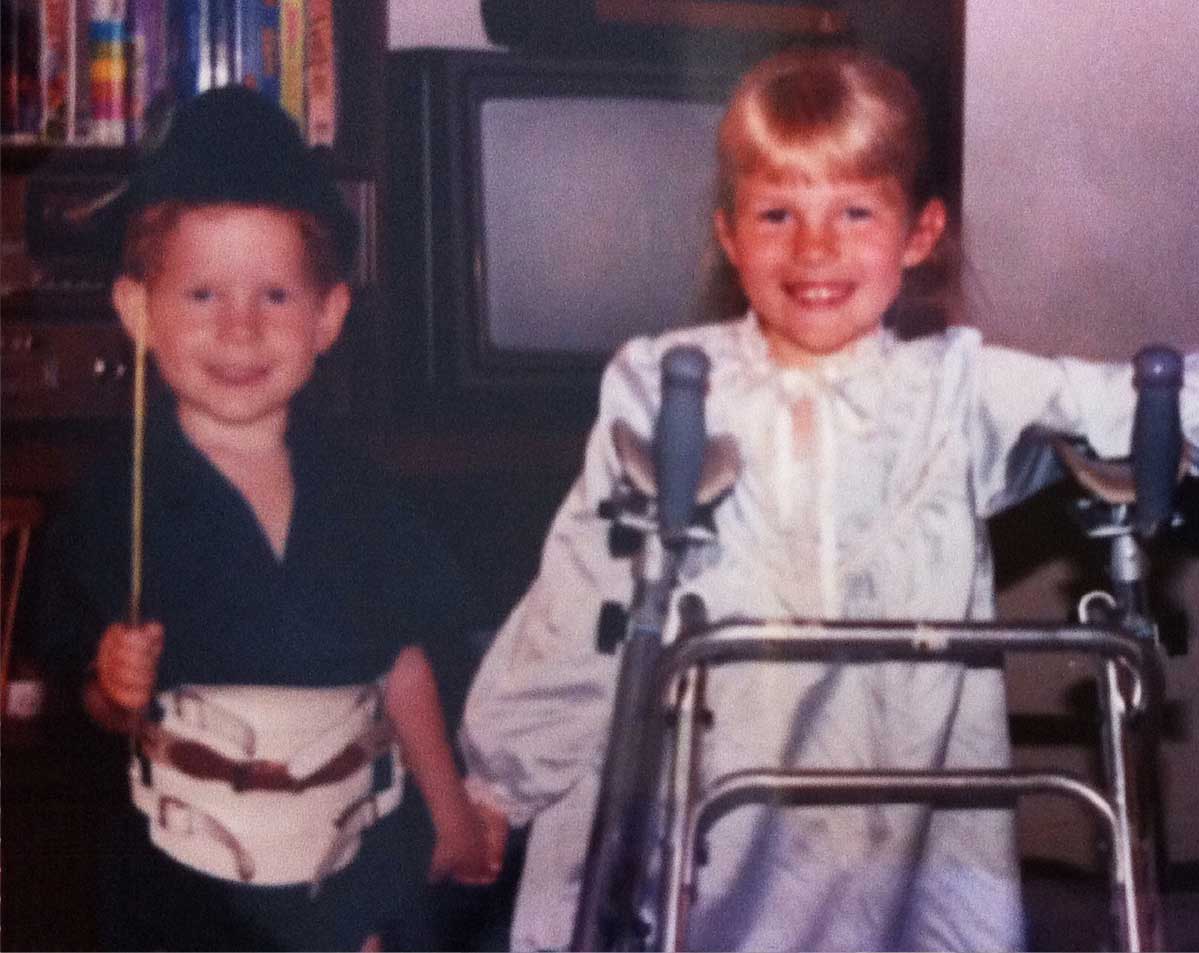Kevan
Fostering independence
in your children (part 1)

My sister and I grew up in an amazing home. We have an older brother and a mom and dad who, my mentor would say, “forgot to tell us we were handicapped.”
“We both have SMA Type 2, but our
lives have been full and wonderful.”
Looking back now, I can attribute that to the choices our parents made to foster within us senses of worth, awareness and ingenuity. When I asked mom and dad about these choices, they shared with me some keys to their methods of raising kids with disabilities. Here are a few tips from their perspective:
- Not All Danger Is Bad: Adventure is life-giving to kids. Scraped knees and broken arms teach them not only their limitations, but their abilities too. For a child with weak lungs, feeble limbs, or a wheelchair, this will look different from other kids. My brother climbed a tree and jumped in an attempt to fly. I couldn’t do that, but I could circle the roller rink with thirty other people a lot bigger and faster than me, and I could play soccer with my running friends on a bumpy Carolina field. There are foolish dangers, like driving your chair into a pond, and then there are dangers that come naturally with living life to the fullest. The latter should be allowed, and as parents, you will need to accept that your child might get hurt but they’ll grow as a person and ultimately be the better for it.
- Let Them Feel Deeply: Growing up is hard in its own right, but then compounding it with a disability makes for a childhood of unbelievable dynamics that many able-bodied adults may never face. Special friendships and broken hearts, cool gadgets and surprise surgeries. It’s a lot to take in. Kids have a profound capacity to feel. They should learn how, and be allowed, to handle those ocean waves of joy, sorrow, love, anger, confusion, etc. As they encounter the world around them, the good and the bad of it, their hearts are tender to the impression it makes. Don’t shelter them from this, but come alongside to help them step into these thoughts and feelings, and navigate such experiences properly to come out on the other end with a healthier, fuller spirit.
- Rebellion Is Not Their Disability: Discipline is important for a child learning how to interact with the world. It clarifies boundaries, which at an early age we test to understand. I learned early on that I can’t backtalk my mom or disobey my dad. I’m in a wheelchair, which means I am an exception to some rules, like extended time on exams or having someone else do my laundry, but I’m not exempt from respecting my fellow man and observing the law of the land.
So much of who we grow up to be is derived from the people who raise us, the world they shape around us, and the ways they help us navigate through that world.
“It’s those daily decisions to be present in the good and bad, and to nurture in your child, by example, the depths and value of life, regardless of disabilities.”
My tip: Look for people who are empathetic to help you get what you need for your child. When someone tells you no or demonstrates an unwillingness to help, move on to another individual. Instead of trying to change a person’s mind, look for the right person to help.